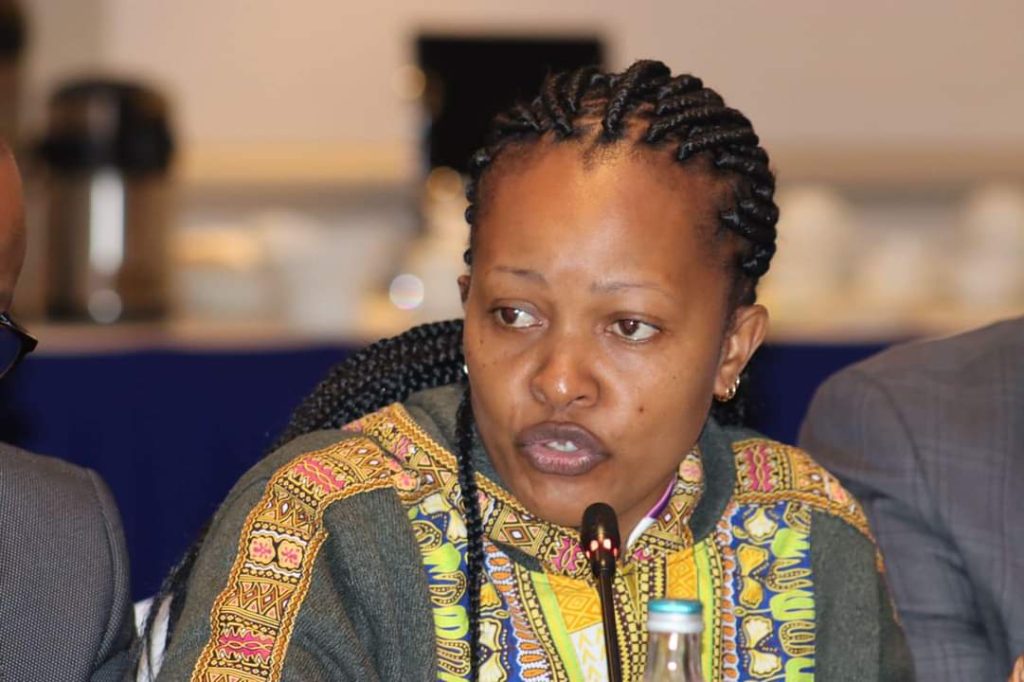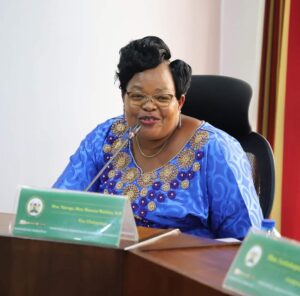House Committee Holds Roundtable With Labour Officialls and Recruiting Agencies, Calls For Improved Management of Immigrants

The Committee on Diaspora Affairs and Migrant Workers has urged the State Department for Labour to find ways of working with recruiting agencies to streamline the management of migrant workers and enhance their welfare abroad.
The Hon. Lydia Mizighi-led Committee made this call during a roundtable engagement with officials from the Ministry of Labour and Social Protection, the State Department for Immigration and Citizen Services,State Department for Diaspora Affairs,Kenya Association of Private Employment Agencies (KAPEA) and Representatives from the Association of Skilled Migrant Agencies of Kenya (ASMAK).
The forum is part of Committee-led Inquiry into the operations of Private Recruitment Agencies. The inquiry further covers matters relating to Policies and Programs geared towards the protection of the Human Rights.
Making her opening remarks during the forum, Hon. Mizighi noted that in the wake of rising unemployment in the country, the Committee is keen to ease the facilitation of Migrant workers with requisite documents for travel and work placements abroad. The facilitation is targeted to cover passport applications and processing, accreditation of facilities for pre- travel medical screening, and work visas for the Saudi Domestic labour Market.
She underscored the need for such engagements as today’s roundtable, in helping sort out the challenges affecting all stakeholders in the migratory workers sector.
“It is expected that Kenyans and more particularly those in the diaspora will benefit from such engagements as this one . Indeed, it is only through continued strategic partnerships among the arms of government, and in the spirit of intergovernmental relations guided by the principles of co-ordination, consultation, and cooperation that we shall be able to deliver on our mandates collectively”, she told the forum.
Representatives from KAPEA and ASMAK decried the the luckluster support offered by government towards the sustenance of their businesses. The Secretary General of KAPEA Ms. Virginia Njoki told the Committee that the requirements for licensing of recruitment agencies and the exorbitant charges for the license itself had proven difficult for a number of them.
She disclosed that several players in the sector had since closed shop in the country and moved to neighbouring countries to open new businesses there.
“Hon. Members, the Ministry’s stringent requirements and high cost of the one-year license is too high to keep us in business. A number of my members have closed shop in Kenya and are now operating in neighbouring countries like Burundi where conditions are favourable”, Ms. Njoki told the MPs.
The Committee also heard that the duration for the agency license- 1 year with no guarantee of renewal, was too short and was hampering the operations of the agencies.They called on the Ministry of Labour to extend the license duration to two years to align with the contract duration for most immigrant workers.
Lawmakers present wondered what would be the fate of a migrant worker whose agency has been deregistered arbitrarily, if they faced challenges in their host countries.
In response, the Principal Secretary for Labour and Skills Development, Geoffrey Kaituko told the Committee that the Ministry would soon be submitting the Labour Migration Management Bill for consideration by Parliament. He informed the lawmakers that the proposed law seeks to not only mainstream migration management, but also proposes the extension of licensing period for migrant recruitment agencies to two years from the current one year.
Representatives of organizations that offer pre- departure training and certification also expressed concerns over rigid regulations enforced by the National Industrial Training Authority (NITA). They told the Committee that though they were keen to assist in the preparation of migrant workers for placement abroad, NITA’s requirements had hindered their endeavors, in its trail leaving behind a host of frustrated young people in search of work abroad.
They called for scaling down of the requirements of those who can be enrolled at NITA, to primary school education to allow as many young people to be absorbed. They further proposed a split of the management of industrial tutelage and homecare training at NITA, given their different placement modalities.
While acceding to this request, PS Kaituko and NITA’s Director General Mr. Stephen Ogenga told the Committee that the Ministry was in the process of establishing two different directorates to oversee the two programs.
Mr. Ogenga further told the Committee that the Authority which has processed over 200,000 placements abroad since 2020, was also currently automating its systems to enhance the registration process for agencies.
Asked why the Ministy had insisted on physical vetting of directors of recruitment agencies, the PS told the Committee that an influx in human trafficking and money laundering by rogue agencies had necessitated the move. He noted that since they had introduced this requirement, a number of agencies that were being fronted by foreigners had closed shop.
The Inquiry continues with the Committee having resolved that the stakeholders meet once again in two weeks to review progress made on some of the matters raised during today’s meeting.





